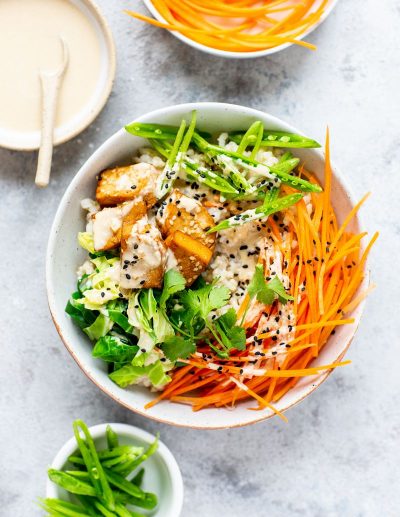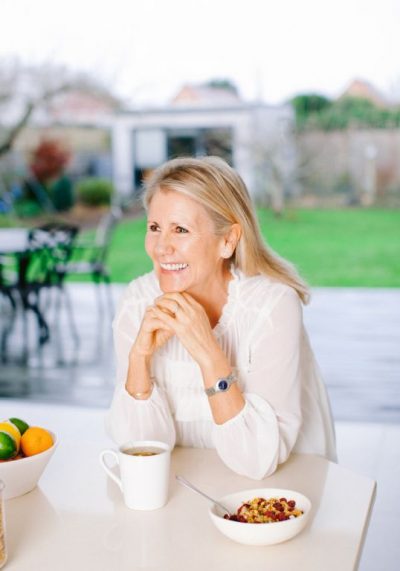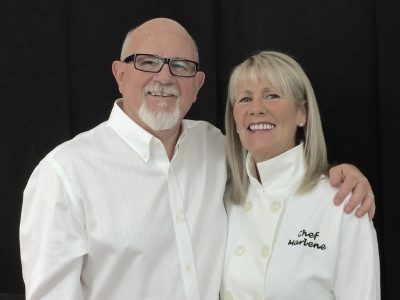Earth Day 2020

Each year on April 22, more than one billion people around the world participate in Earth Day activities. An annual focus on a different theme assures global environmental concerns receive highlighted notice. This year, April 22 marks the 50th celebration since the first Earth Day in 1970.
The theme for Earth Day 2020 is climate action. The enormous challenge — but also the vast opportunities — of action on climate change have distinguished the issue as the most pressing topic for the 50th anniversary.
Climate change represents the biggest challenge to the future of humanity and the life-support systems that make our world habitable. We all have the power to create a better world. The only thing that will change the world is a bold and unified demand for a new way forward. For us, that message is loud and clear. In our latest books How To Eat Right & Save The Planet and Go Vegan we cover everything that anyone needs to know to make the change the world so desperately needs. You have this decision at your fingertips, you can do it right now, you just make the decision to Go Vegan, that's it. We seriously can save the earth, we are part of it, not separate from it.
Bills video on Earth Day is filled with gems to make us all think in a 'good way' about what can be achieved when we work together, please share this message with family, friends and colleagues.
As for me, I am sharing with you my favourite food on the planet that is a daily staple in our home, short grain brown rice. From this one grain we can produce 10,000 grains. No man woman or child should go hungry. With a plant based vegan diet, we can feed the world. Food is grown, not born.
Lemon-Infused Baked Tofu Brown Rice Bowl
A very versatile recipe that works well in sandwiches, salads and rice bowls, this baked tofu brown rice bowl is high in plant-based protein, fibre, vitamins and minerals and tastes fantastic. With layers of flavour and texture from marinated baked tofu, fresh carrot, crisp mange tout, chewy brown rice, crunchy black sesame seeds and creamy sauce, you’ll love how these delicious ingredients and textures come together.
For the rice bowl
4 cups cooked short-grain brown rice
For the tofu
250 g pack firm organic tofu
3 garlic cloves, minced
2 tbsp tamari
2 tbsp mirin
1 tbsp lemon juice
1 tbsp freshly grated ginger juice
2 tbsp balsamic vinegar
1 tbsp brown rice syrup
1 tsp sriracha (optional, if you desire a hot sensation)
½ cup filtered water
1 tbsp sesame seeds
Lemon & Lime Tahini Sauce
2 tbsp. organic white tahini
2 tbsp. sweet white miso
1 tsp lemon juice
1 tsp. brown rice syrup
1 tsp. ume plum seasoning
½ tsp. oregano
Pinch celery seeds
Splash of tamari
Filtered water
Mix all ingredients together in a small bowl adding water gradually until thick and creamy.
Serve over broccoli and decorate with toasted black sesame seeds.
Blanched vegetables
2 carrots
2 cups mange tout
Toppings
Lemon and lime tahini sauce
Black sesame seeds
Blanched carrots and mange tout
Fresh coriander
To make the tofu
Make the marinade by combining all the ingredients except the tofu together and set aside. Wrap the block of tofu in a clean towel, place it on a plate and cover with another plate. Place something heavy on top of the plate and leave for 1 hour. This will squeeze the water out. Cut the tofu into slabs about ½ inch (1 cm) thick, then cut into squares. Place in a dish and pour the marinade over the tofu. Shake well to cover all the cubes. Cover and refrigerate overnight.
Preheat the oven 170°C (340°F), gas 4. Line a baking sheet with parchment paper and place the tofu cubes in a single layer. Bake for 8–10 minutes, then turn the tofu over and bake on the other side for 5 minutes, until golden brown.
Blanch the carrots and mange tout in a pot of boiling water for 1 minute. Remove and drain. Rinse under cold water.
To serve, divide the rice among four to six bowls. Top with tofu and drizzle over a generous amount of lemon and lime tahini sauce. Top with the carrots, mange tout and some black sesame seeds. Makes 4–6 servings.
As always, we ask you to take care of each other, or if you are on your own, take care of yourself.
We are here to help and assist should you need any further information but please refer to all my previous blogs on how to stay strong with a robust immune system.
In good health
Building Strong Immunity

Boosting your immunity by adopting the following principles is easy.
As you will know, Phytonutrients come from a plants own immune system and are helpful for our own healing. The best known of these being antioxidants; Phytonutrients can be found in all plant foods.
It is essential to give your body excellent daily nutrition to keep your immune system healthy and strong. Nutritional deficiencies make it easier for us to be susceptible to viruses and bacteria. Make sure you have a variety of organic wholefoods including grains, beans, fresh fruits and vegetables, nuts and seeds. It is vital to have a balanced macrobiotic/wholefood vegan diet with a variety of ingredients. Bill and I call our approach MACROVegan and it’s our daily mantra to the world.
Today many foods are highly processed and loaded with sugar. These additive rich foods will actually weaken the immune system as will the animal foods, especially dairy which I have already written about. All the foods in my video link here are top notch for building a robust immune system.
Stay Strong
Excessive amounts of raw fruits and juices have a weakening effect on the immune system and should be eaten in moderation and only in hot weather, if at all. It is best to eat the whole fruit.
Add fermented foods such as good-quality miso soup to your diet. A cup every day is what we enjoy. Adding good bacteria to your intestines helps build up your natural defences. A small amount of good-quality pickles (1-2 tablespoons) to each meal is another way of adding good bacteria to your intestinal flora.
The greatest concentration of cells related to our immune system is in our small intestines. The healthy bacteria from fermented foods interact with the cells in our intestines in a way that has been shown to activate our immune system.
Enjoy sweet tasting vegetables such as squash, carrots, cabbage, parsnips and onions. Lightly cooked leafy greens like are also extremely beneficial and we enjoy them three times a day. Sea vegetables also provide important minerals and help to strengthen the immune system.
What Else Can You Do?
There are a number of factors that contribute to the health of your gut microbiome, including your environment, the amount of exercise and sleep you get, and of course, stress. But the number one factor that determines what microbes live in your gut (and which ones die off) is your diet.
As I teach all and sundry… food makes the blood, blood makes the cells, cells make the tissue, tissue makes the organs and here we be….
Getting out into the fresh air can stimulate the immune system cells in lungs and help make our immune system more active. Deep breathing can help as this will also bring more oxygen to our blood. Relaxing exercise will help blood and lymph circulation, making it easier for our immune system to operate and get rid of unwanted bacteria or viruses.
When your desire to change your life to one of health and longevity is strong enough anything is possible and wonders come about at great speed. Without absolute faith and belief in what you are doing you would get nowhere.
This is the art of living, the art of manifestation. - Hydrate, eat plants, exercise, get some sun,
Stay well, take care and go cook some grains and beans – every day should be a day we all Go Vegan
In good health
On-line Nutrition Study with Marlene and Bill

Our life's work and passion has been to educate others on how to live a long healthy happy life. We have students in 27 countries who have travelled to study with us to become a beacon of light for their communities. Many of them then go onto teach others the Marlene & Bill approach others simply attend as part of their own self-development to learn how to disease proof their families.
Getting the world back into their kitchen is one of the most important things we can all do to contribute to a healthy world for all who live here, humans and nonhumans alike.
Part of the confusion that dominates modern trends in nutrition is a result of limited thinking. We have accepted the idea that nutrition has to do exclusively with the chemical analysis of food. We believe that reductionist thinking can reveal the secrets of the healthiest way of eating – we are mistaken.
Human nutrition can only be understood if issues such as our biological history, the impact of our diet on the environment, the social implication of our food choices and the cultural influences on our eating are taken into account. The specific nutrients that comprise our diet are only significant if all these other factors are understood. This inclusive view of nutrition is the essential feature of the Human Ecology Diet as detailed in my latest book Go Vegan.
Bill has been an advocate of a plant based diet and health activist for over 50 years and myself, for 40 years. During that time, Bill has been involved with the pioneering activities of the emerging natural foods industry in America and the UK and established macrobiotic education centres in Chicago, Los Angeles and London, UK. In London he established the Community Health Foundation and together with Michio and Aveline Kushi was a co-founder of the Kushi Institute.
He served as the Director of Natural Therapies in one of Europe’s premier Wellness Clinics, engaged in private health practice and been invited to 26 countries to deliver seminars on Nutrition, Environmental Health, Oriental Diagnosis.
My passion to see a vegan world drives me daily. I have been blessed indeed to observe the disease reversal from hundreds of clients, train chefs and cooks and deliver workshops around the world.
This course reflects both our studies, teaching experience, observation and personal experience over these decades. It is not simply a review of nutrient needs, it speaks to a broader and deeper understanding of health and the human condition. My passion to get the world back into their kitchen knows no bounds. Here is the hopeful even revolutionary idea from my beloved friend Professor T. Colin Campbell. "Namely, people can defend themselves against the worst effects of the COVID-19 infection, and help flatten the curve of hospitalisations, by strengthening their immune systems through their food choices."
About the course
The course is divided into 15 modules with print course material comprised of over 300 pages with full reference notes, and 15 video presentations.
Upon entry into the programme students will have access to a dedicated Facebook page where questions can be submitted to us both as well as providing a discussion board for students to share experiences. I will also be posting other material for you to enjoy and read at your leisure. Some of that material is from my other online courses and we offer those as a gift to you.
You will also have two half-hour Skype sessions with Bill and Marlene during the course at a mutually agreed date and time.
If students wish a MACROVegan nutrition certificate testing will be offered on request.
Programme
Module One – Course Notes and Video: Who’s In The Kitchen? A review of the changing attitudes about food since the 1930’s, the development of the modern food industry and the creation of the American Diet.
Module Two – Course Notes and Video: Trust Me, I’m A Scientist. How food science, food flavorists and big business manipulates our desire for poor quality food.
Module Three – Course Notes and Video: Bad Medicine. The role of the medical profession in creating public ideas about disease and the ability to prevent illness through lifestyle and diet.
Module Four – Course Notes and Video: Questioning Authority. Social challenges to the power of medicine and healing from the 1800’s to the present. A review of leaders in nutritional and social thought and their effect on emerging ideas of health.
Module Five – Course Notes and Video: The Healing Kitchen. The relationship of food to inflammation and disease development and the possibility of diet as a healing modality.
Module Six – Course Notes and Video: Food for Thought. How what we eat affects sensitivity and our mental and emotional functions.
Module Seven – Course Notes and Video: Ancient Wisdom. The ancient methods of classification of food and their relationship with climate and environment. Interpreting the morphology of plant form and growth.
Module Eight – Course Notes and Video: Diet and Human Ecology. An exploration of the ways that the principles of ecology can be used to better predict the nutritional effect of foods.
Module Nine – Course Notes and Video: The Living Earth. Soil quality is a prime factor in the nutritional values of foods. This module examines the direct effect of farming methods and agribusiness on food quality and security.
Module Ten – Course Notes and Video: Collateral Damage. Food is grown, caught, raised or killed by people who exist behind the veil of corporate labels. The requirement for food slaves is a fundamental part of the modern industry with many implications for social and even individual health.
Module Eleven – Course Notes and Video: Bad Karma. The use of animals as a food source has increasingly been shown as a major factor in human disease and yet we continue to operate on outdated nutritional theories about their need. This module looks at the arguments that drive the conversation.
Module Twelve – Course Notes and Video: Creating A Food Ethic. In today’s world we need solid principles to guide science and social action. Nutrition requires a strong ethic in the face of diminished food security, world hunger and the rise of preventable disease among the young.
Module Thirteen – Course Notes and Video: What We Need. Nutritional science has identified the basic elements to meet the requirements of human health. This module focuses on the primary nutrients essential for health.
Module Fourteen – Course Notes and Video: Where We Get It. This module shows the best sources for gaining nutritional needs using the Human Ecology Diet.
Module Fifteen – Course Notes and Video: Recipes for Healthy Living. In this module Marlene Watson-Tara will share 60 recipes that reflect the principles of the course including Desserts, Soups, Sauces, Main Courses and Side Dishes.
We look forward to meeting you.
In good health


